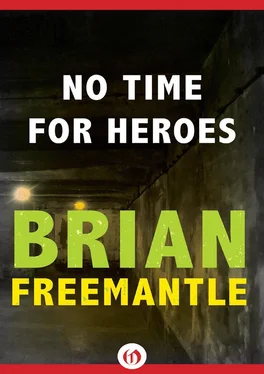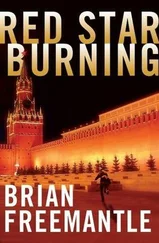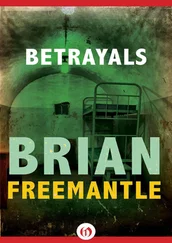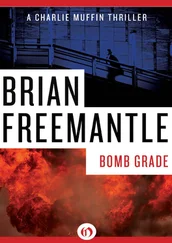Brian Freemantle - No Time for Heroes
Здесь есть возможность читать онлайн «Brian Freemantle - No Time for Heroes» весь текст электронной книги совершенно бесплатно (целиком полную версию без сокращений). В некоторых случаях можно слушать аудио, скачать через торрент в формате fb2 и присутствует краткое содержание. Жанр: Триллер, на английском языке. Описание произведения, (предисловие) а так же отзывы посетителей доступны на портале библиотеки ЛибКат.
- Название:No Time for Heroes
- Автор:
- Жанр:
- Год:неизвестен
- ISBN:нет данных
- Рейтинг книги:5 / 5. Голосов: 1
-
Избранное:Добавить в избранное
- Отзывы:
-
Ваша оценка:
- 100
- 1
- 2
- 3
- 4
- 5
No Time for Heroes: краткое содержание, описание и аннотация
Предлагаем к чтению аннотацию, описание, краткое содержание или предисловие (зависит от того, что написал сам автор книги «No Time for Heroes»). Если вы не нашли необходимую информацию о книге — напишите в комментариях, мы постараемся отыскать её.
No Time for Heroes — читать онлайн бесплатно полную книгу (весь текст) целиком
Ниже представлен текст книги, разбитый по страницам. Система сохранения места последней прочитанной страницы, позволяет с удобством читать онлайн бесплатно книгу «No Time for Heroes», без необходимости каждый раз заново искать на чём Вы остановились. Поставьте закладку, и сможете в любой момент перейти на страницу, на которой закончили чтение.
Интервал:
Закладка:
Danilov sat silently for several moments. ‘You haven’t mentioned the passport,’ he challenged.
‘It was found,’ Cowley confirmed.
‘How many times had Paulac been here?’
‘So you found something at the embassy?’ smiled Cowley, challenging in return.
Danilov didn’t smile back. ‘Why were you keeping it back?’
Cowley did not answer directly. ‘We checked out every restaurant against which there was a credit card slip. There wasn’t one single identification of Paulac with Serov. Only this last time. Paulac always stayed at the Mayflower, Serov never showed there.’
‘So you didn’t consider it significant?’
Cowley, discomfited, said: ‘What sort of limitations have your people put upon you?’
‘I’d guess about the same you worked under in Moscow. I intend operating properly, as best I can. And if I don’t think I can, I’ll tell you. I’m sorry you don’t feel like doing the same.’ He had little room for genuine anger, Danilov accepted.
‘There was no sighting of him with Serov on the previous occasions!’ repeated Cowley. He guessed he was visibly flushing. He nodded to the file still unopened in front of Danilov. ‘The other entry dates are set out there. You’d have seen them when you read it!’
‘I only had the one visit with which to confront Raisa Serova in Moscow. It could have been useful to have them all.’
It was a valid point, conceded Cowley. But he hadn’t recognised how it might have helped the Russian. Which was an absurd oversight. Worrying, too. ‘My mistake,’ he admitted.
‘There was no sensible reason!’
‘I’m sorry.’
Danilov supposed he could send Pavin to see the woman again, but guessed she would swamp the man with her arrogance. He took the paper from his pocket, dictating the four other dates in the earlier months on which the misspelled words appeared in Serov’s diary both in the office and the man’s home.
‘Paulac was here on every occasion,’ confirmed Cowley, checking them off against his own copy of the dossier. He was still burning with embarrassment at Danilov’s rebuke. It had been stupid, doing what he’d done: or been made to appear stupid, the way Danilov had caught him out. Worse, it had meant the man going ill-prepared into the interview with the wife.
He’d won the exchange, Danilov decided: there was nothing to be achieved maintaining an offended attitude. ‘Serov never mentioned Paulac by name,’ Danilov disclosed. ‘He used a simple but quite effective code. On each day he also records attending an event in a public place – the Smithsonian, that sort of thing – where anyone could go.’
‘You think he might have met Paulac at those places?’
‘I think it’s worth taking the photographs to the organisers and staff to check.’
‘So do I,’ agreed Cowley. ‘What was the code?’
‘Misspelling an English word with a Cyrillic letter.’
‘That the only time he used it?’
Danilov hesitated. Practically all of the two-hour delay in coming to Pennsylvania Avenue had been spent trying to understand the purpose or function of the other misspelled words in the apartment diary, which was resting now in the inside pocket of his jacket. And which he had failed to do. Just as he failed to understand the purpose of the same code which Serov appeared to have used over the preceding years in a lot of the papers and files – although never the official embassy diary – in the shelved bottom cabinet of the office bookcase, which Danilov had specifically checked before leaving the embassy for the FBI building. A computer was a million times faster than the human brain, he thought. ‘There were a lot of other occasions. But I don’t think it connects with Michel Paulac.’
‘Why not?’
‘The duplication isn’t in the office diary, which the Paulac meetings are. The letters appear in the diary he kept at Massachusetts Avenue, and link with the logs and archives of what he did over the most recent years he was here: he was a fanatical keeper of records. And in this case the letters aren’t duplications, either.’
‘I don’t understand,’ frowned Cowley.
‘It’s just a collection of separate letters. Could your scientific people programme a computer to play Cyrillic crossword puzzles? But without the clues to guide them?’
‘I think they’ve been doing it for years,’ smiled Cowley, glad that Danilov smiled back.
Danilov finally opened his dossier and held up the much enlarged photograph taken from the financier’s passport. ‘This Paulac?’
‘Yes,’ nodded Cowley.
‘I’ve collected some photographs from the apartment, of Serov with another man. This isn’t him.’
‘We’re not going to get that lucky!’ said Cowley.
Danilov continued looking through the file. After a few moments he looked up and said: ‘The briefcase was inside the car, not the boot?’
‘Yes.’
‘Locked or unlocked?’
Cowley smiled again, acknowledging the professionalism. ‘Open. It’s a combination lock that gave our forensic people a hell of a job: the two sets of numerals are separately programmed but only mesh when they’re operated in unison.’
Danilov nodded, as if he were receiving confirmation of something. ‘A Swiss financier whose entire professional life is governed by secrecy doesn’t leave open in a car a briefcase he’s taken the trouble to have fitted with an especially difficult lock.’
‘I know,’ agreed Cowley. ‘I’d give a lot to know what was taken out.’
‘Any indication Paulac was forced to give up the combination?’
Cowley gestured to the file in Danilov’s lap. ‘Look at the photographs! How could you tell, from that!’
Cowley saved Danilov the chore of copying the American dossier by offering a second set, which gave the Russian one for the Interior Ministry and one for Pavin. They agreed there was little purpose in setting the computer task for the Bureau’s cryptology division with an incomplete selection of letters; Danilov thought he could get them all from Serov’s folders the following morning. He gratefully accepted Cowley’s invitation to dinner that night with the two local homicide detectives, and put Firsov and Redin out of their misery by announcing the outing as soon as he returned to the embassy on 16th Street.
Accepting he had to comply to some degree with Moscow’s instructions, Danilov offered a briefing on his visit to the FBI. Firsov and Pavlenko blanched at the photographs of the decomposed body of Michel Paulac; Redin remained unmoved. Intent upon any give-away reaction from any of the three, Danilov disclosed it was probable the financier and Serov had met on other occasions, without mentioning the connection between the marked diary dates and the entry stamps on Paulac’s passport. None of them showed any apprehension at the enquiry deepening the involvement of the embassy. Danilov then took Pavlenko through the earlier dates: the cultural official pedantically compared his own diary to the office version before insisting he’d known nothing of Serov’s movements. Danilov thought he could spot a liar under questioning and decided Pavlenko was telling the truth.
‘I will send this to Moscow tonight,’ announced Danilov, with the file in his hand. He spoke looking at the security officer.
‘Yes?’ said Redin, curiously.
‘I’d like to see the report you made to the Interior Ministry, after you examined Petr Aleksandrovich’s office.’
Redin blinked. ‘I’m not sure of your right to do that.’
‘Then I’ll ask for a ruling from Moscow,’ declared Danilov briskly. Trying to guard against any alteration or editing, he said: ‘My assistant can collect it from the Ministry, if there’s any problem in your finding the original.’
Читать дальшеИнтервал:
Закладка:
Похожие книги на «No Time for Heroes»
Представляем Вашему вниманию похожие книги на «No Time for Heroes» списком для выбора. Мы отобрали схожую по названию и смыслу литературу в надежде предоставить читателям больше вариантов отыскать новые, интересные, ещё непрочитанные произведения.
Обсуждение, отзывы о книге «No Time for Heroes» и просто собственные мнения читателей. Оставьте ваши комментарии, напишите, что Вы думаете о произведении, его смысле или главных героях. Укажите что конкретно понравилось, а что нет, и почему Вы так считаете.












